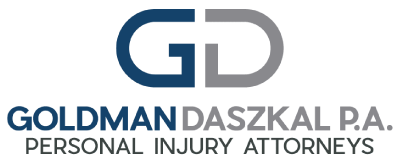If you suffer an injury on someone else’s property in Florida, you might have a premises liability case. Many factors go into whether you can file a claim, including whether you were invited to the property or you were trespassing there. The best way to know if your situation is eligible for a lawsuit is to discuss the matter with experienced Florida premises liability attorneys.
To help you understand Florida’s laws surrounding premises liability and prepare you to discuss the matter with an attorney, we’ll outline some of the most important legal aspects of these kinds of cases.
Your Status at the Time of Injury
When Florida law refers to your status at the time of your premises liability injuries, it’s referring to whether or not you were an invitee, licensee, or trespasser on the property. Here’s the definition for each of these statuses.
- Invitee: When a property owner invites someone to their property, that guest is now viewed as an invitee under Florida premises liability laws. Individuals who are shopping at a store or engaging on public property in some way are also categorized as invitees. The courts expect the property owner or operator to maintain a safe and hazard-free environment for invitees and other guests on the property. Property owners must complete regular maintenance that prevents foreseeable mishaps or warn the invitees of any hazardous conditions. Generally speaking, individuals with this status have the easiest path to a successful premises liability claim in Florida.
- Licensee: A licensee is anyone who isn’t necessarily invited onto the property but has been permitted to be there. This might include family members, neighbors, or friends. While individuals classified under this status can still file a premises liability lawsuit, they might face a more difficult road to a settlement than invitees.
- Trespasser: Property owners do not extend any sort of invitation to trespassers on their property. There is no assumption of them being permitted to be there. Trespassers can only sue for injuries sustained on that property under very specific circumstances. Generally, the only pathway to a premises liability case for trespassers is for the property owner to have set up hazards specifically intended to harm trespassing individuals.
Florida Premises Liability Laws for Trespassers
Many circumstances can leave room for trespassers to still file a claim under premises liability laws in Florida. Here’s a look at some ways property owners can be held liable for injuries a trespasser sustains while on someone else’s property.
- Traps rigged to harm trespassers: Setting up traps on your property directed at harming trespassers leaves room for those trespassers to file a lawsuit against you for their injuries. This might be a rigged gun, tripwire, knife, or any other apparatus set up to hurt trespassers while they are on your property.
- Discovered trespasser: If the property owner knew that the trespasser was on the property for at least 24 hours but did nothing to ensure they were removed, the trespasser could file a premises liability lawsuit if the injury occurs after those 24 hours.
While property owners need to be vigilant in knowing when a person is trespassing on their property so they can remove those individuals, they must also avoid using excessive force or acting with intention to harm the trespasser.
When to Contact Florida Premises Liability Attorneys
Because premises liability cases are complex, it’s best to discuss your unique situation with knowledgeable Florida premises liability attorneys. Regardless of whether you were an invitee, licensee, or trespasser on the property, you could receive compensation from the property owner if you’re injured on their land.
In your search for the right attorneys, look for a team that helps you understand your rights and allows you to feel at ease. You should never feel pressured into filing a case when you don’t want to, especially if family members are involved!
Your legal team should also be responsive and make you feel like your case is important. Timeliness is important when dealing with the Florida court system because there is a statute of limitations on premises liability cases.
At Goldman & Daszkal, our clients receive superb customer service and responsiveness. We offer a free consultation to help you evaluate your situation and make an informed decision about your next steps. Whether you were invited to the property or were trespassing, you should protect your best interests and learn about your legal options. Contact our premises liability attorneys to get started.
